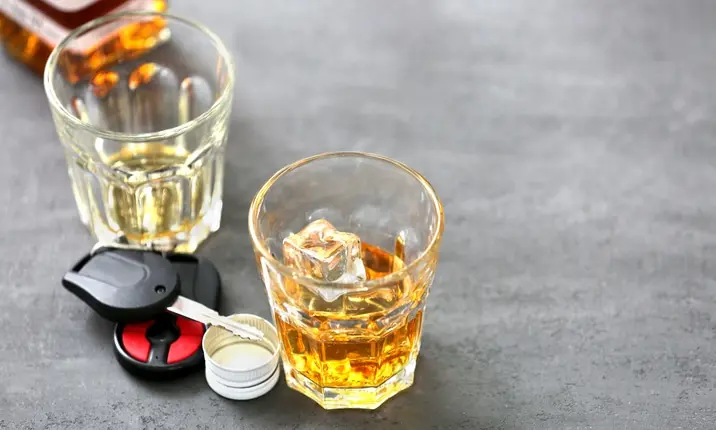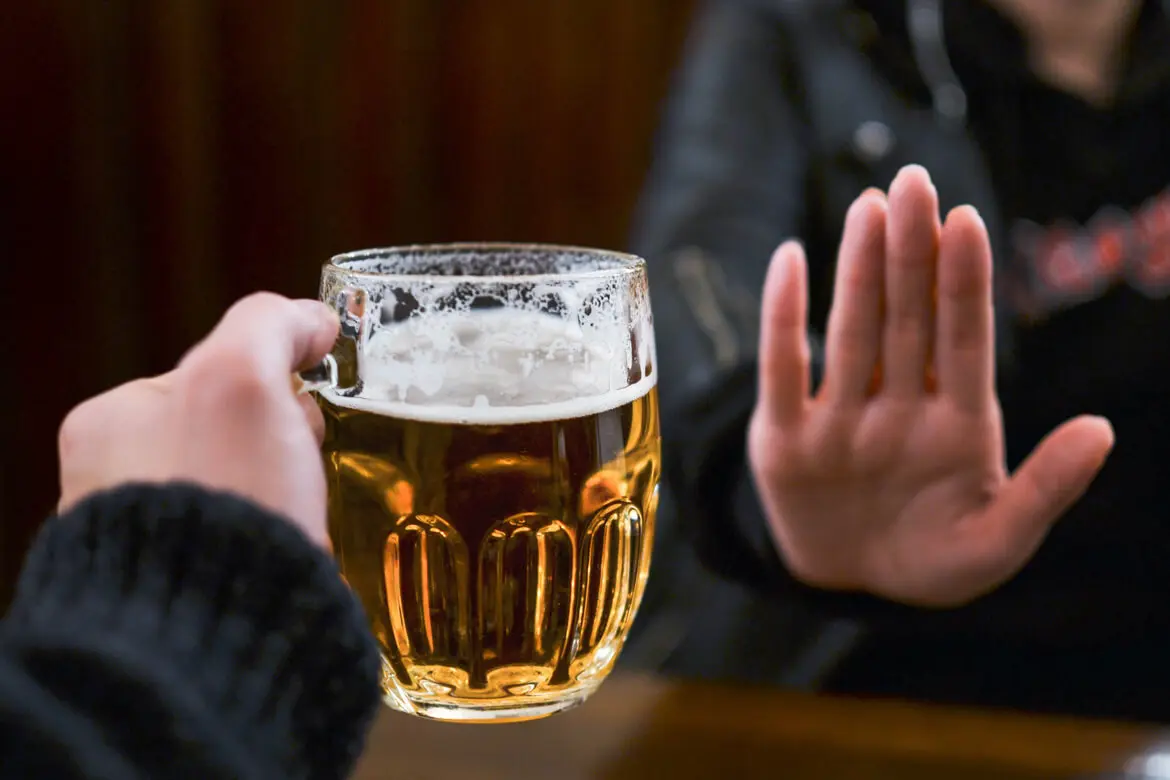-
-
Featured Care Areas


Source: Shutterstock
Festive Drinking: How Much Alcohol Can I Have Before Driving?
Last updated: Tuesday, February 9, 2021 | 4 min reading time
Planning to attend a festive party this season? Stay safe and know your limits with our guide to responsible drinking.
You may have been tempted to climb behind the wheel of your car after a post-work glass of wine, or after a couple of beers at your friend's birthday party.
But do you really know how many drinks you are allowed before you reach the legal drink-driving limit?
Drink responsibly and don't take the risk of hurting others or yourself.
Responsible drinking
Responsible drinking means drinking within the appropriate limits to avoid getting drunk and so that alcohol does not control your life or your relationships.
Tips for responsible drinking
Healthy men, below 65 years old, should not consume more than:
- 4 drinks a day
- 14 drinks per week
Healthy women of any age and healthy men above 65 years old, should not consume more than:
- 3 drinks a day
- 7 drinks a week
Drinking responsibly means practising certain habits, such as:
- Never drink and drive
- Getting a designated driver if you are planning to drink
- Not drinking when stomach is empty
- Checking if any medications you take is unsafe with alcohol before drinking
Drink driving and alcohol limits in Singapore
Singapore's legal drink-driving limit is strictly enforced at 80 milligrams per 100ml of blood, or 0.08% blood alcohol content.
If your breath alcohol content is more than 35 micrograms of alcohol per 100ml of breath, or you are under the limit but appear to be out of control in your vehicle, you can still be criminally charged.
How much you can drink to stay under these limits depends on many factors, including:
- your weight, age, sex, metabolism
- what you've eaten that day
- the type of alcohol you're drinking
- the amount you're drinking
- your stress levels
The truth is, there is no foolproof way to drink and drive safely.
Even a small amount of alcohol can affect your driving ability, so it is always best to avoid drinking entirely when you plan to get behind the wheel. Instead, use public transportation or call a taxi to take you to your destination.
Blood alcohol content (BAC) effects
According to the CDC (Centers for Disease Control and Prevention), even 0.02% blood alcohol content can impair your judgment. Here are just some of the effects drinking may have on your functions:
| BAC level | Effects |
|---|---|
| 0.02% | * Decline in ability to track moving objects * Decline in ability to multi-task |
| 0.05% | * Decline in ability to track moving objects * Reduced coordination and response time to emergencies * Difficulty steering |
| 0.08% | * Decline in ability to process information * Lack of speed control * Reduced concentration, short-term memory loss and impaired perception |
| 0.10% | * Decline in ability to maintain lane position and brake at the right time |
| 0.15% | * Decline in ability to process sights and sounds * Impaired vehicle control |
| 0.16% | * Dysphoria (anxiety and distress) predominates * Nausea * The drinker appears as a sloppy drunk |
| 0.30% | * Alcohol poisoning * Loss of consciousness |
| 0.40% | * Onset of coma * Possible death due to respiratory arrest |
What do the blood alcohol content results mean?
A blood alcohol test is used to detect and measure the level of alcohol in your blood. It is more accurate than the breathalyzer that is commonly used.
Typical blood alcohol content (BAC) results are as follows:
- Sober: 0.0% BAC
- Legally intoxicated: 0.08% BAC
- Very impaired: 0.08 – 0.40% BAC
- At risk for serious complications: > 0.40% BAC
Note that a standard drink is approximately a 355ml can of beer, half a glass (150ml) of wine, or a shot (44ml) of spirit.
How long does it take for my blood alcohol content to drop? Can I drive the next day?
On average, it takes about an hour for an adult to process 1 unit of alcohol so that there's none left in their bloodstream. (A standard alcohol unit is 8g of pure alcohol, which is about 330ml of 4% beer, 125ml of 13% wine or 25ml of 40% spirit.)
However, this is different for everybody. and not a sure-fire way to calculate whether you are under or over the legal drink-driving limit.
If you consume several alcoholic drinks over the course of an evening, you may even still be over the legal drink-driving limit the morning after, as the breakdown of alcohol by enzymes in your body depends on a mix of factors.
There is nothing you can do to make the alcohol disappear from your system quicker, so if you know you need to get behind the wheel the morning after a party:
- Try and limit yourself to no more than 2 standard drinks (men) or 1 standard drink (women)
- Opt for lower strength drinks, e.g. 4% or lower beer, 12% or lower wine, single spirit measures
- Alternate alcoholic drinks with soft drinks or water
- Stop drinking well before the end of the night
Tips for responsible drinking
Drinking doesn't just impact your ability to drive. While there is nothing wrong with enjoying the occasional drink, abusing alcohol regularly or in large quantities can affect your judgement, lead to dangerous situations and negatively impact your health.
To stay safe this holiday season:
- Check with your doctor to find out if it is safe for you to drink, especially if you have a pre-existing health condition or are taking medication
- Remember to eat a snack or meal before drinking alcohol
- Stay with your friends and don't wander off alone
- Pay attention to signs of a friend having had too much to drink (slurred speech, unsteady coordination, inappropriate behaviour) and call for help if the situation is urgent
- Drink plenty of water during and after drinking alcohol
Long-term alcohol abuse can have severely damaging effects, such as liver damage, diabetes, ulcers, high blood pressure, stroke, heart attack, infertility or cancer. If you are concerned about your drinking habits or need more advice, do consult your doctor.
Alcohol and Health – Set Your Drinking Limits. (2016, January 1). Retrieved November 7, 2017, from https://www.healthhub.sg/live-healthy/920/alcohol-and-health-set-your-drinking-limits
BAC Effects – Impaired Driving: Get the Facts. (n.d.). Retrieved November 7, 2017, from https://www.cdc.gov/motorvehiclesafety/impaired_driving/impaired-drv_factsheet.html
Can I Drive the Morning After Drinking Alcohol? (n.d.). Retrieved November 7, 2017, from https://www.drinkaware.co.uk/alcohol-facts/alcohol-and-the-law/can-i-drive-the-morning-after-drinking-alcohol/
Drink Driving and the Legal Alcohol Limit. (n.d.). Retrieved November 7, 2017, from https://www.drinkaware.co.uk/alcohol-facts/alcohol-and-the-law/drink-driving-and-the-legal-alcohol-limit/
How Much Is Too Much? (2014, November 14). Retrieved November 7, 2017, from https://www.healthhub.sg/live-healthy/11/binge_drinking_howmuch_toomuch
Staying Safe While Drinking. (n.d.). Retrieved November 7, 2017, from https://www.drinkaware.co.uk/advice/staying-safe-while-drinking/
What is An Alcohol Unit? (n.d.). Retrieved November 7, 2017, from https://www.drinkaware.co.uk/alcohol-facts/alcoholic-drinks-units/what-is-an-alcohol-unit/
Responsible Drinking (2020, January 23) Retrieved December 16, 2020, from https://medlineplus.gov/ency/patientinstructions/000527.htm
Blood Alcohol Level (2020, December 03) Retrieved December 16, 2020, from https://medlineplus.gov/lab-tests/blood-alcohol-level/
Effects Of Alcohol At Specific Blood Alcohol Levels (BAC) (n.d) Retrieved December 16, 2020, from https://www.trafficticketusa.com/duidwi/effects-of-alcohol-at-specific-blood-alcohol-levels-bac/
How Long Does Alcohol Poisoning Last? (2019) Retrieved December 16, 2020, from https://www.healthline.com/health/alcoholism/how-long-does-alcohol-poisoning-last
Unit and Calorie Calculator. Retrieved December 16, 2020, from https://www.drinkaware.co.uk/tools/unit-and-calorie-calculator
BAC Effects – Impaired Driving: Get the Facts. (n.d.). Retrieved November 7, 2017, from https://www.cdc.gov/motorvehiclesafety/impaired_driving/impaired-drv_factsheet.html
Can I Drive the Morning After Drinking Alcohol? (n.d.). Retrieved November 7, 2017, from https://www.drinkaware.co.uk/alcohol-facts/alcohol-and-the-law/can-i-drive-the-morning-after-drinking-alcohol/
Drink Driving and the Legal Alcohol Limit. (n.d.). Retrieved November 7, 2017, from https://www.drinkaware.co.uk/alcohol-facts/alcohol-and-the-law/drink-driving-and-the-legal-alcohol-limit/
How Much Is Too Much? (2014, November 14). Retrieved November 7, 2017, from https://www.healthhub.sg/live-healthy/11/binge_drinking_howmuch_toomuch
Staying Safe While Drinking. (n.d.). Retrieved November 7, 2017, from https://www.drinkaware.co.uk/advice/staying-safe-while-drinking/
What is An Alcohol Unit? (n.d.). Retrieved November 7, 2017, from https://www.drinkaware.co.uk/alcohol-facts/alcoholic-drinks-units/what-is-an-alcohol-unit/
Responsible Drinking (2020, January 23) Retrieved December 16, 2020, from https://medlineplus.gov/ency/patientinstructions/000527.htm
Blood Alcohol Level (2020, December 03) Retrieved December 16, 2020, from https://medlineplus.gov/lab-tests/blood-alcohol-level/
Effects Of Alcohol At Specific Blood Alcohol Levels (BAC) (n.d) Retrieved December 16, 2020, from https://www.trafficticketusa.com/duidwi/effects-of-alcohol-at-specific-blood-alcohol-levels-bac/
How Long Does Alcohol Poisoning Last? (2019) Retrieved December 16, 2020, from https://www.healthline.com/health/alcoholism/how-long-does-alcohol-poisoning-last
Unit and Calorie Calculator. Retrieved December 16, 2020, from https://www.drinkaware.co.uk/tools/unit-and-calorie-calculator











